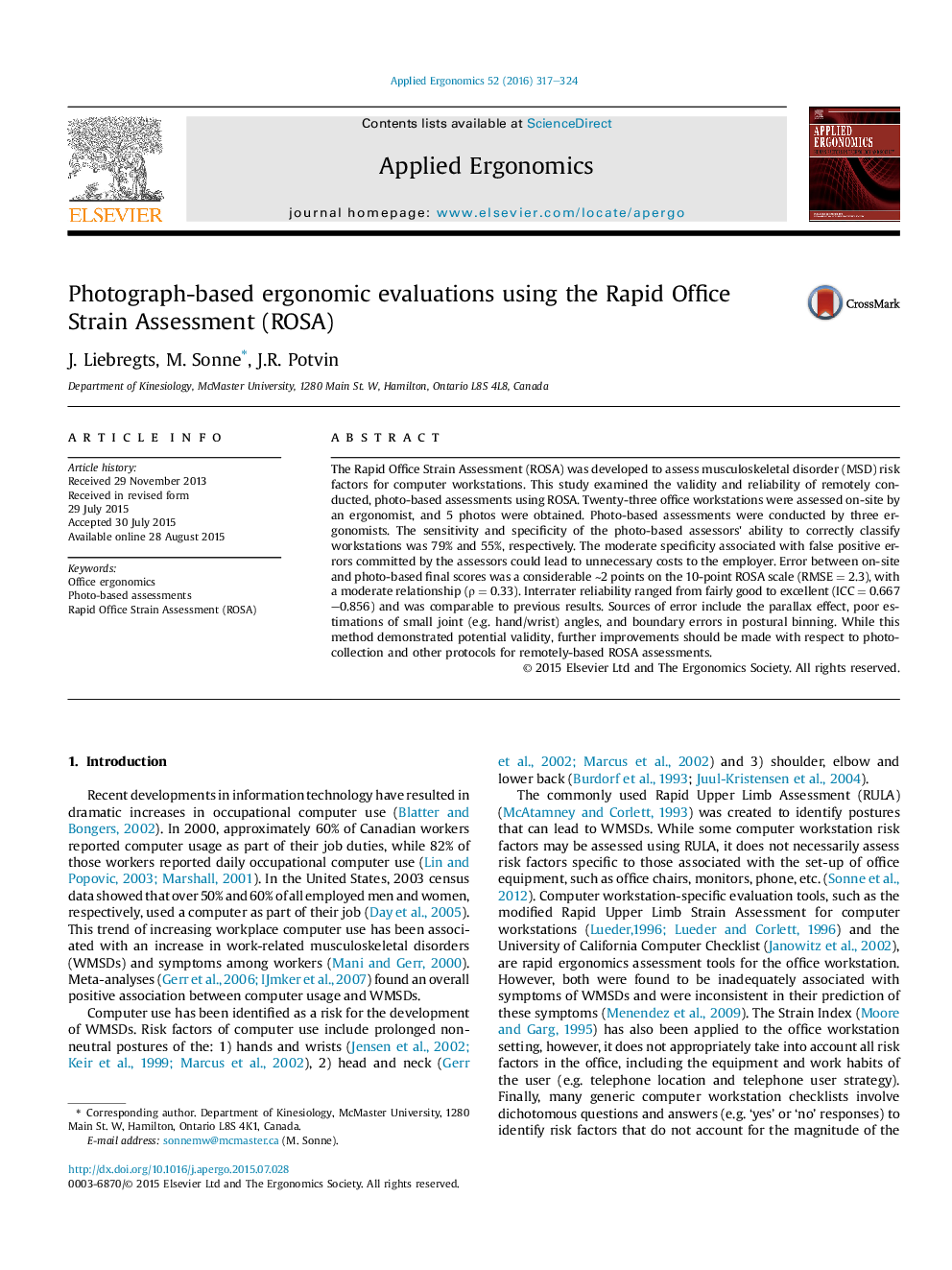| Article ID | Journal | Published Year | Pages | File Type |
|---|---|---|---|---|
| 6947947 | Applied Ergonomics | 2016 | 8 Pages |
Abstract
The Rapid Office Strain Assessment (ROSA) was developed to assess musculoskeletal disorder (MSD) risk factors for computer workstations. This study examined the validity and reliability of remotely conducted, photo-based assessments using ROSA. Twenty-three office workstations were assessed on-site by an ergonomist, and 5 photos were obtained. Photo-based assessments were conducted by three ergonomists. The sensitivity and specificity of the photo-based assessors' ability to correctly classify workstations was 79% and 55%, respectively. The moderate specificity associated with false positive errors committed by the assessors could lead to unnecessary costs to the employer. Error between on-site and photo-based final scores was a considerable ∼2 points on the 10-point ROSA scale (RMSE = 2.3), with a moderate relationship (ρ = 0.33). Interrater reliability ranged from fairly good to excellent (ICC = 0.667–0.856) and was comparable to previous results. Sources of error include the parallax effect, poor estimations of small joint (e.g. hand/wrist) angles, and boundary errors in postural binning. While this method demonstrated potential validity, further improvements should be made with respect to photo-collection and other protocols for remotely-based ROSA assessments.
Keywords
Related Topics
Physical Sciences and Engineering
Computer Science
Human-Computer Interaction
Authors
J. Liebregts, M. Sonne, J.R. Potvin,
